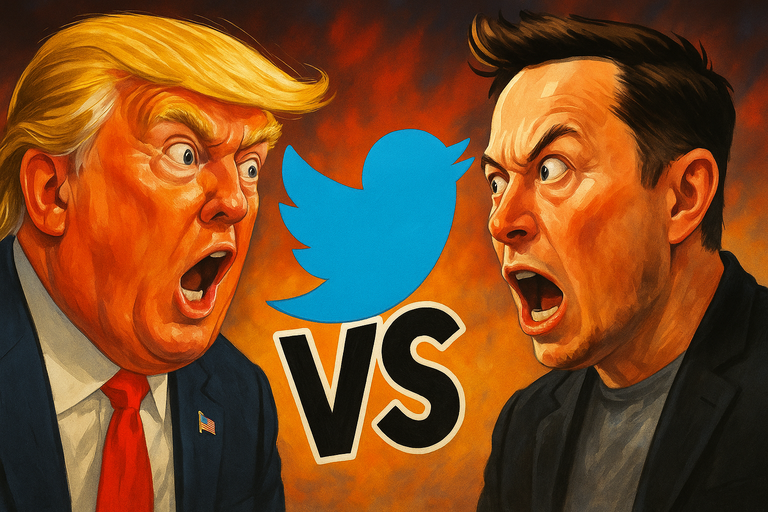- Posted on

Imagine this: You’re writing a script. Your protagonist lives in constant fear, not of some dystopian AI god, but of a real-world surveillance network. Now, what if I told you that this network isn’t run by Big Brother… but by your neighbors, friends, and strangers on TikTok or WhatsApp?
That's not sci-fi; it's today's America. A recent WIRED article reveals a gripping trend: social media has morphed into a guerrilla alert system for undocumented communities facing ICE raids. It's grassroots, decentralized, and—most importantly—real. So, why should you, as a 2025 scriptwriter or creative technologist, care?
Let’s break down what’s happening—and why it should upend how you write stories about surveillance and resistance.
The Shocking Power of DIY Digital Networks
Forget what you know about top-down surveillance. The dominant Hollywood trope is clear: shadowy agencies, omnipresent CCTV, phone taps, and hackers in hoodies. But the data paints a different picture. In the last two years, over 50,000 ICE raid alerts have circulated on platforms ranging from Telegram to local Facebook groups and Spanish-language WhatsApp chains. These are everyday people, not government agencies, surveilling the surveillants.
Key insight: - The undocumented community is leveraging cheap, ubiquitous tech to protect itself and outmaneuver institutional scrutiny. - These networks work horizontally, not vertically. No commander, just many nodes and many stories.
If you’re still writing about surveillance as a one-way, top-down phenomenon, you’re missing the most important twist of the 2020s: power is peer-to-peer now.
How This Alters Storytelling Playbooks
Open loop: What happens when the watched become the watchers?
Real-life DIY alert systems force us to rethink classic tropes: - Who’s really in control? The institution, or the crowd? - Where’s the drama? It's in the panic and hope in a group chat, the risk of a single wrong ping, the tension of digital trust and betrayal.
And here’s the kicker—people trust these informal alert systems more than institutional sources, as shown by a 2024 Pew survey indicating 67% of respondents believe “community alerts” over official statements about law enforcement activity in their area.
So what does this mean for your script? - Side characters become central: The neighbor who passes a message is as vital as the protagonist. - Digital skills are survival skills: Mastering group chat privacy, burner accounts, and meme-coded warnings are the new lockpick sets. - Tension is local and global: The threat feels personal, yet the network is planet-spanning.
Real Data, Real Stakes: Numbers Every Writer Should Know
Let’s get analytical: - According to the WIRED investigation, nearly 1 in 5 undocumented Americans participated in or benefitted from such alerts in the last year alone. - The most active periods coincide with national immigration crackdowns—social media activity spikes up to 300% during these windows. - Misinformation is a real risk: Over 30% of circulated alerts were either unverified or later proven false. Dramatic irony, anyone?
Plot idea: What happens when your protagonist gets a fake alert, and the stakes are life or death?
What Can You Learn from These Communities?
This isn’t just fodder for thrillers. The collaborative, adaptive nature of these networks mirrors how creative teams work in 2025—remotely, seamlessly, and in real time. Think Slack for survival, Discord for dignity.
- Writers: Layer in the emotional reality of crowdsourced safety nets. The anxiety, the hope, the mistaken identities.
- Technologists: Imagine tools that scriptwriters or characters might use—automated alert bots, encrypted check-in systems, digital safe houses.
- Storytellers: Nail the texture of urgency and improvisation. These aren’t polished operations; they’re messy, human, and heartbreakingly brave.
How The Infinite Dude Media Helps You Channel These Trends
If you want to tap into the heartbeat of contemporary storytelling—where technology, fear, and hope collide—look to communities built to support writer-innovators. The Infinite Dude Media is a prime example: a hub for storytellers obsessed with real-world impact, new narrative forms, and practical creative support.
By connecting with forward-thinking organizations like The Infinite Dude Media, you don’t just track the zeitgeist; you help shape it. The evolutions in real-life information warfare are the blueprints for tomorrow’s most urgent and resonant scripts.
Conclusion: The Future Is Peer-to-Peer—and Yours to Script
The next time you brainstorm a scene about government surveillance, pause. Imagine a social alert thread pinging every second. Picture a protagonist who’s both a target and a node in the network. Ask: Who’s really controlling the narrative?
Want to keep your work ahead of the cultural curve? Plug into communities that take real stories and amplify them—just like the creators and collaborators at The Infinite Dude Media do every day.
So, how will you bring these game-changing realities into your next project? Let’s talk in the comments, or better yet—show us in your next script. The future of storytelling is already online, and it’s waiting for you to log in.
